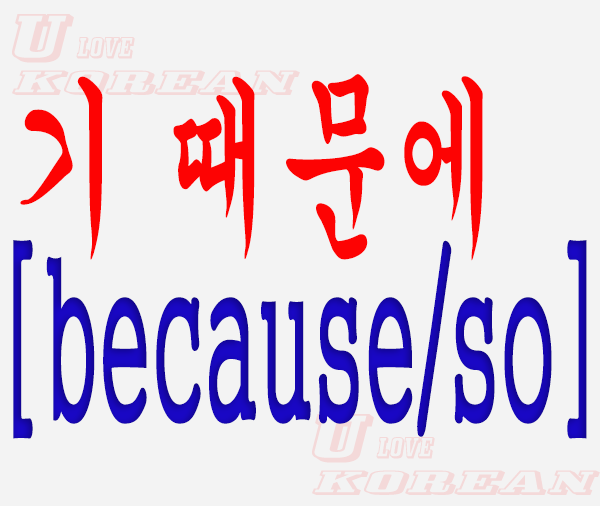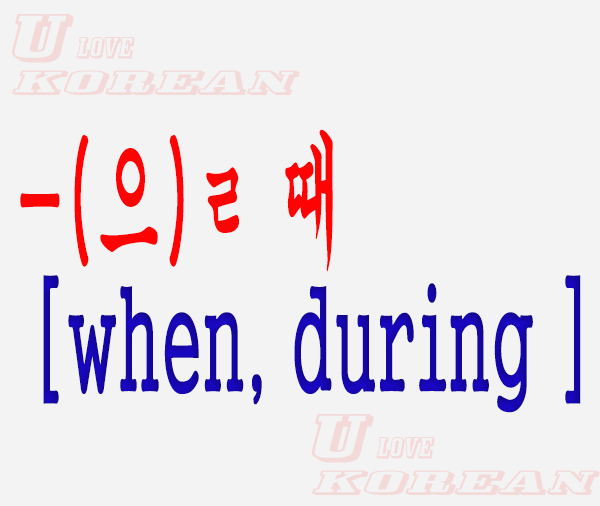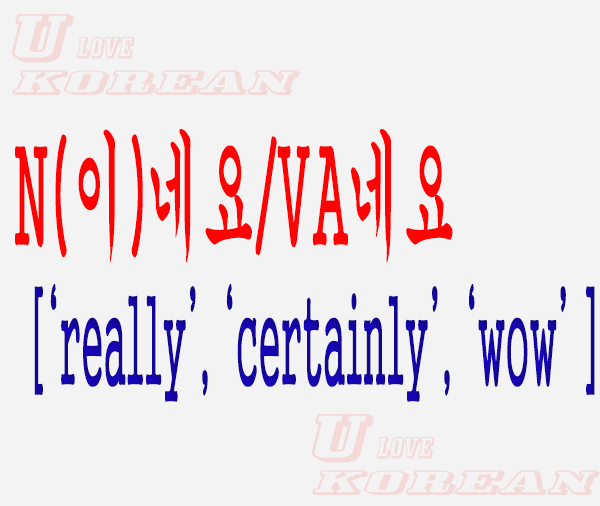New Posts
V다 보면(If you keep doing)

'V~다 보면' : This expression indicates that if the action or behaviar in the previous clause continues, then over time the result in the following clause will occur.
11.09.2023 | You Love Korean
취미와 취미 활동(Hobby and hobby activities)

'취미와 취미 활동' related vocabularies for beginner and intermediate korean learners.
10.09.2023 | You Love Korean
-는/(으)ㄴ(Present tense modifier)

1. –는/(으)느 is attached to a verb, an adjective or ‘noun +이다’ and used to modify a following noun, indicating a current action or state.
가: 어떤 날씨를 좋아해요?
What kind of weather do you like?
09.09.2023 | You Love Korean
기 때문에(because/so)

– 기 때문에 is attached to a verb, an adjective and ‘noun+이다’, indicating a reason or a cause for an action or a situation.
- 기 때문에 which means “because/so” in English.
- 기 때문에 is used when expressing a clear reason and is a more literary expression than -아/어서 and (으)니까.
08.09.2023 | You Love Korean
N이/가 되다(to come / it is (was, will be))

–이/가 되다 is attached to a noun, indicating that the subject becomes the noun.
수미가 벌써 대학생이 되었어요.
수미 is already a university student.
제 여동생은 가수가 되고 싶어 해요.
07.09.2023 | You Love Korean
N이/가 아니다(To not be)

–이/가 아니다 is attached to a noun, negative –이다. In informal setting, 이/가 아니에요 is used for the present tense ending.
저는 학생이에요.
I am a student.
저는 학생이 아니에요.
I am not a student.
06.09.2023 | You Love Korean
-(으)ㄹ 수 있다/없다(Can/Can't In English)

–(으)르 수 있다/없다 is attached to a verb stem, indicating an ability/disability or a possibility/impossibility.
피아노를 칠 수 없어요.
I cannot play the piano. (ability)
06.09.2023 | You Love Korean
-(으)ㄹ 때(when, during)

1. -(으)ㄹ 때 is attached to a verb, an adjective, 'noun+olr|', indicating a period of time when something or a situation continues or the moment when something happens.
가: 시간이 있을 때 뭘 해요?
- What you have time, what do you do?
나: 시간이 있을 때 영화를 봐요.
- When I have time, I watch movie.
05.09.2023 | You Love Korean
N(이)네요 / VA네요(really, certainly, wow)

– 네요 is attached to a verb, an adjective and ‘noun+이다’. It is an exclamatory ending that expresses surprise or exclamation at the moment when the speaker is talking about something.
- When agreeing with something said by someone else.
- It corresponds to ‘really’, ‘certainly’, ‘wow’ in English.
04.09.2023 | You Love Korean
A/V-(으)ㄹ텐데(I would imagine…. Or …must be true…)

- Equivalent to “I would imagine….” Or “…must be true…”
- Combination of ~(으)ㄹ 터이다 (gives intention) and ~(으)ㄴ/는데 (expresses background info)
03.09.2023 | You Love Korean
